Touchy by 20 Stories High: An interview with creators Pari Richards, Faye Donna Francis and Kofi Owusu
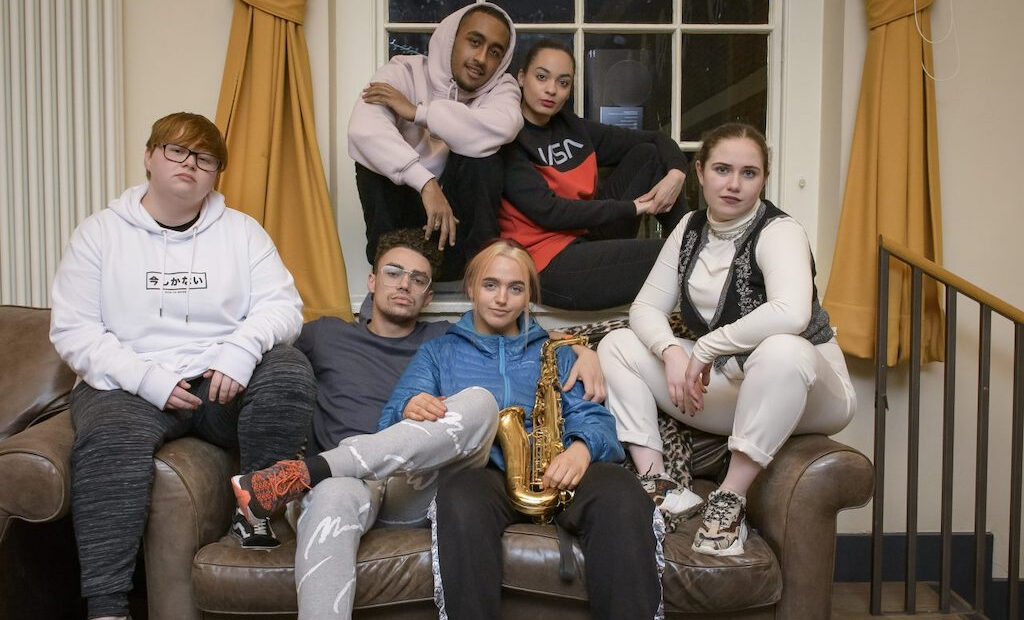
Commissioned by the Welcome Collection as part of its Touch Test study, in association with Unity Theatre, 20 Stories High presents Touchy, a series of five intriguing short films, created by young Liverpool artists, about issues such as undiagnosed autism, family bonds, intimacy and consent, freedom of public expression in same-sex relationships, and male interactions from a trans perspective. With six performers – actors, musicians, rappers and poets – the pieces contain theatre, music video, drama, poetry, animation, original music and imagery. The works were conceived as stage projects, and evolved to film after lockdown.
Musician Faye Donna Francis wrote and performs in Jazz’s Story, Kofi Owusu from GoPlay Studios is the director of photography and editor, and Pari Richards co-wrote and plays Ste in Ella and Ste’s Story. We were able to catch up with them to learn more about Touchy.
What inspired Touchy?
Pari Richards: Touchy was inspired by Welcome Collection’s Touch Test study in 2020 and was commissioned originally as a nationally touring gig theatre production, inspired by the concept of touch. 20 Stories High started research and development with young Liverpool artists but then the pandemic hit and the project had to be reimagined as a series of online films.
Can you describe your collaboration on this show?
PR: I was cast as an actor in the role of Ste for Ella and Ste’s Story – which I perform with Izzy Campbell. The two characters individually relive a moment from their past that meant very different things to each of them. It explores the perspective of consent in a romantic relationship.
Kofi Owusu: My collaboration on this show started out peripherally, by helping to source and audition potential cast members. It slowly grew from there to becoming director of photography, along with some music production and then finally the editing of some of the films.
Faye Donna Francis: My collaboration in the show has been very musical. I wrote and performed Jazz’s Story – which is told through song and explores issues of touch from the point of view of a young woman displaying affection for her girlfriend in public. Initially it involved creating different songs in a jam-type session. Then, once in lockdown, I was given the permission to source tracks, write lyrics and create melodies, before performing the song made for a music video.
Six performers were cast – actors, poets, musicians and rappers. What were your criteria in choosing artists and themes? What were you looking for?
PR: I believe the directors and producers were looking for six diverse and versatile local performers to help bring this piece to life. Indeed, the cast was made up of actors, poets, musicians and rappers. Although, we are all multi-disciplinary artists, which I believe helped us all bond and collaborate so much easier during our research and development.
KO: Based on my early involvement, what I was looking for in performers was the ability to translate these stories in a manner that really brings us into the world and journey of the characters.
How has lockdown changed art? Has it added new dimensions? Is it an essential element of this production?
PR: This production alone is a prime example of how the pandemic has changed art. As a team, we had to adapt and adjust so many times and over so many issues during this project. Originally, we were supposed to create a theatre show and it’s resulted in us (18 months later) releasing five short films. Lockdown has been awful for the creative industries in general, but, creatives being creative, we have found ways to produce work, finish unfinished projects or work on our crafts further.
KO: I don’t think lockdown has changed art. Art is forever moving and shape-shifting and its fluidity is always going to be manoeuvred by what is going on in the world socially, politically or culturally. That being said, the lockdown has definitely forced artists and creatives to think of new ways to create, showcase and perform their art. For some people the lockdown has given them time and helped their art and creativity flourish. For others, though, it has had quite the opposite effect.
FD: I believe lockdown has changed art, because it is valued so much more in the eyes of those who do it and those who enjoy watching or listening to it. Lockdown has changed artists as it has given them the permission to surrender to the pressures of the outside world and make something that it true to them. Prior to the rehearsal room, I had never explored songwriting; 15 months later I am an active songwriter and artist. I have become much more involved with artists’ work online, and have now even created new working relationships with people, which is amazing. I think it was an essential element for some of the Touchy stories because the lockdown either helped or hindered the relationships in the stories presented.
What kind of impact do you hope this show achieves on its viewers?
PR: I hope that these films reach young people on a national and (through the power of the Internet) global scale. They all are related through the theme of touch, yet each individually tackles lots of important modern issues for young people growing up.
KO: I hope it gives an insight into some of the silent struggles and issues that people in our wider community are going through. I know it’s made me think and look at things slightly differently and has given me a wider knowledge of some things I may not have fully understood before, or may have not taken the time to understand properly.
I hope it leaves the viewers more informed and allows them to take glance at themselves and see how they may or may not be able to help move things forward, regarding some of the subjects.
FD: For the viewers I hope that these stories can help them humanise people they may have never come across or have chosen not to be around. I also help, particularly with Jazz’s and Max’s Story (which features young LGBTQIA+ characters), which illustrates that people should have the freedom to love or identity with whom and whatever they choose, especially in Liverpool.
Is there a unifying message in these pieces?
PR: Obviously, the theme of touch links each piece in the series, but I believe each has its own messages to take individually.
KO: For me the unifying message is about communication. Coming from someone who can usually show a lack of good communication skills, to me it’s clear that within each story, although the umbrella theme is touch, for me, it’s about communication and how the lack of it is where a lot of issues arise. Within each story, somebody’s method of communication or lack of communication or even need for other forms of communication is what creates the base of the struggles.
FD: Absolutely! We all experience touch throughout our lives, but I don’t think we take the time to acknowledge how it can make us feel. Maybe this is the project to start the conversation.
Launch Academy [a professional development programme for emerging theatre makers delivered by 20 Stories High in partnership with the Unity Theatre, Liverpool] is a wonderful initiative for giving talented, underrepresented artists a voice. Higher education was at one time free in the UK, allowing opportunity for all. Do you think programs like yours fill that void?
PR: Although I was not part of Launch, many of my friends and colleagues participated and spoke of the experience very highly. Programs like Launch help young people gain further education in certain fields, but much more could be done by our government to allow more inclusive opportunities or alternative educational routes after school.
KO: I think any programme that is free to young people, that can help them creatively and give them a voice, is something that should be protected but nurtured in a way so that it can sustain and maintain giving a platform and spring-boarding new artists and creatives.
Is there a person who has particularly influenced or inspired you?
PR: I have been influenced by a wide-ranging spectrum of people artistically, however, I have been inspired to even higher levels by 20 Stories High. They have managed this project wonderfully, considering the restraints and constant restrictions. The whole team has had to adapt to so much and has truly been a pleasure to work with.
KO: I’m inspired by many people for many different reasons, whether that be musicians, writers or local people in the community. A main inspiration of mine is Kanye West – not only in a sense of being a massive creative who has never conformed and is constantly pushing boundaries, but also because of his stubbornness to not be placed in a box and not be limited to doing one thing or what people or society say you should be doing.
FD: I am really inspired by all the local musicians making moves. Callum Crighton, KOF, Rain Castillo, IAMKYAMI, Zuzu and Man Like Mally. The Liverpool music scene is starting to thrive, however we have to work so hard to be recognised. These people are creating music and visuals that are superb. And they teach me if they can do, it why can’t I?
What advice, if any, would you give young creatives?
PR: To not let this horrible virus and this pandemic deter their artistic dreams; keep working, keep creating and remember their potential is limitless.
KO: Enjoy the process! The journey is more fun than the destination! Don’t get stuck in a routine! Everyone won’t love what you do, just the same way that you don’t love everything that has been done, so try not to take criticism too personally. It’s just one out of a million opinions!
FD: Experiment, explore and don’t go to drama school or uni straight after finishing school. Go live some life and find out who you are outside of the education system.
Besides art, what motivates you in life?
PR: Education is certainly a key component of what motivates me. I will be undertaking my initial teacher training in September so I can teach performing arts to young people and help motivate future generations of young artists.
KO: When I find it I’ll let you know!
FD: Age. I never want my age to stop me, and also let my age help me embrace what is truly happening in the present moment. You will never be this age again, so explore what that age means.
Any ideas for future projects you’d like to share with us?
PR: I’m currently working on a writer’s program as a playwright with a local grassroots arts company called Blackfest and the Liverpool Royal Court Theatre.
KO: Ideas in abundance! Although the last time I shared an idea somebody stole it!
FD: I have just released my new single and video Where Do We Even Go and I will be continuing to write more music throughout the year.
Do you see hope for change, and do you think the arts can be a catalyst?
PR: I believe so much can be achieved through art, and so many important messages can be broadcast to everyday people from all walks of life. Art can inspire real change because of this. From the political impact of Augusto Boal’s Theatre of The Oppressed to the praise and uproar of the dance troupe Diversity’s George Floyd tribute on Britain’s Got Talent, the arts can tackle many important contemporary social issues.
KO: Always gotta have hope for change, and it’s always happening right before our eyes – just sometimes it seems too slow to actually see. It’s like that ship that is miles out that you can just make visible in the distance. It doesn’t look like its moving but one day you’ll look up at it will arrive to shore. It might just take a while, though, because it’s still got a lot of fog to get through, wind, bad weather and probably a few storms before it gets here.
FD: I see hope for change when I speak to younger people – they are so much more aware and active in worldly issues, which I believe will create a more mindful generation, and the arts will create change because we are the art form that allows many subjects and people to be humanised.
Catherine Sedgwick
For further information about 20 Stories High and Touchy visit here.

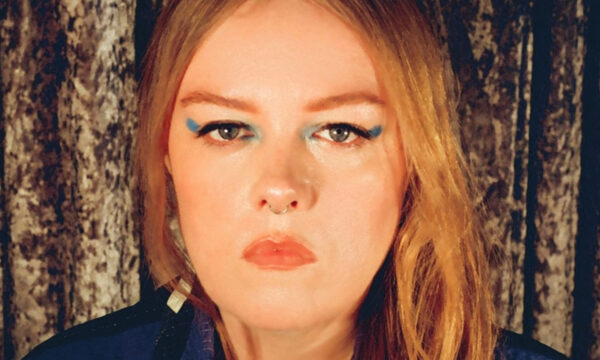


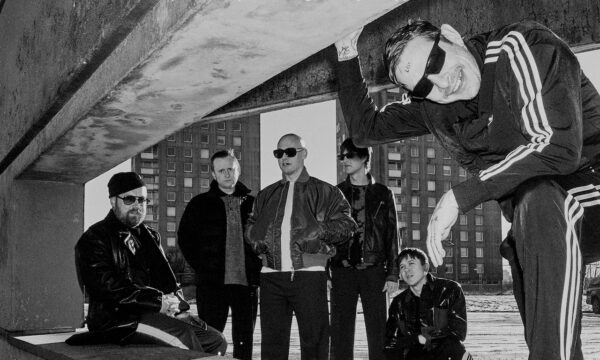
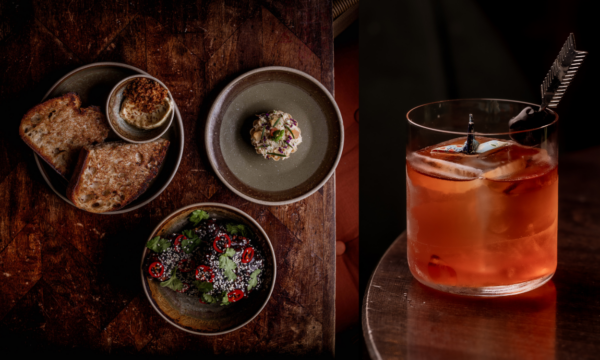











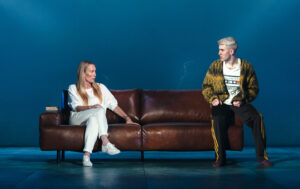






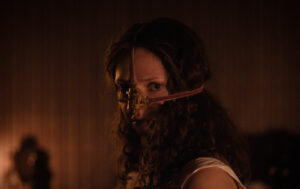
Facebook
Twitter
Instagram
YouTube
RSS